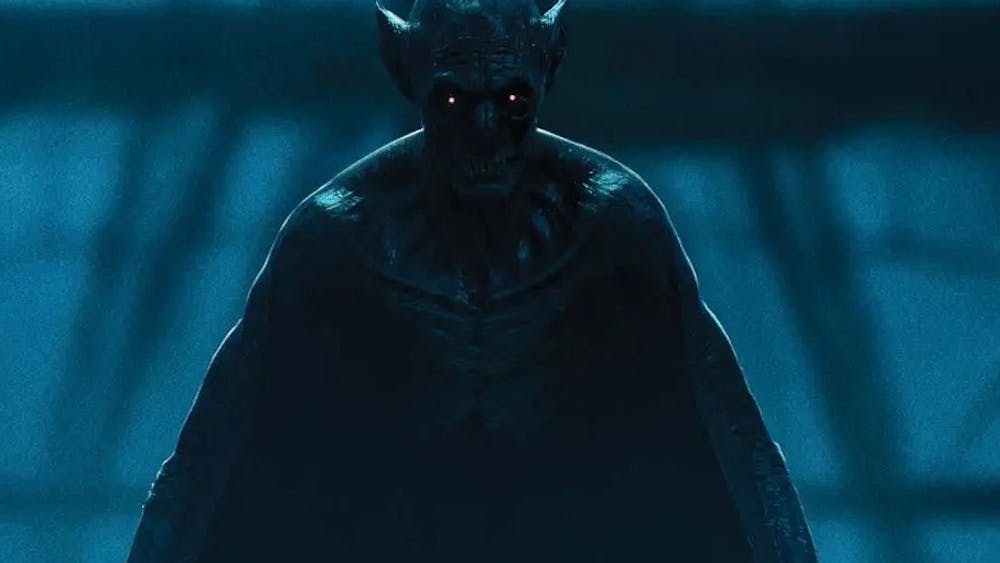Going to an IU Opera Theater production is often a brilliantly crushing experience. Opera regulars know the majority of the repertoire is tragic or melodramatic, with heavy singing and a mix of lighter comedic works from the world's most lush and exquisite composers.\nSettings at the Musical Arts Center are often feats of spectacle in themselves. Towering over the stage, they often heighten the emptiness of the lives of the characters they house.\nBut this season, the opera's shattering sensation from these dramatically impressive achievements is often delivered in shambles. The latest IU Opera Theater production of Jules Massenet's "Manon," which opened Friday night, fell victim to a lack of creative cohesion.\nNevertheless, shining moments do exude from beyond the shortcomings, and new voices to IU are truly proving the opera's season motto that we are viewing the vocal "Stars of Tomorrow Today." \nIn the title role, graduate student Maija Lisa Currie's delicately powerful voice shimmered in every note sung. In three-and-a-half years of IU operas, hers is among the top three voices I've heard and certainly the greatest female student voice to sing on the stage in that time. \nAble to project to the third balcony with a mere sliver of sound, she could also maneuver through the very top of the coloratura and dramatic soprano range. It was her voice alone that allowed me to stay put for three-and-a-half hours.\nBut in a show that long, Currie alone could not fully deliver the evening, and coming to her aid was a cast and production that seemed a far cry behind her.\nProfessor David Effron conducted the Concert Orchestra as a master craftsman, shaping the pre-impressionist score to fit both its most amusing and climactic moments. The rousing overture opened the stage to a light and airy set from professor emeritus Robert O'Hearn, but as the opera continued, it was to be the first of five sets -- each with its own distinct style. What was puzzling was that none of the sets seemed to be part of the same show.\nOne act seemed to take place in the same quaint village of "The Elixir of Love" or a promenade garden from "The Marriage of Figaro," while other acts seemed to take place in the house of Franz Wozzeck or even the grove of expressionistic trees behind his home. Not to mention that in the fourth act, James Bond could have walked right in on the casino and played a scene from "Goldfinger."\nSimilarly, the opera does not lend itself well to an easily told story. Originally produced by the Opera Comique in France, the opera presents itself as a story about love, lust, greed, innocence, the military or the plebeian versus the upper crust -- it could be a tragedy or a comedy. Simply stated, it's not quite clear from Massenet, his librettist Henri Meilhac or the IU Opera Theater as to what the opera is about.\nThe story seems to have been told by guest director David Gately with his hands tied behind his back. The sets are less than acknowledged -- simply dealt with hastily, and the staging reflected that notion. No distinction seems to have been made: characters enter (gradually and in numbers of three for the chorus), stand in their various spots and sing. The movements remain the same throughout with some minor changes. \nVisuals aside, Manon's lover de Grieux, played by graduate student Eric Small, has shown incredible vocal improvements since his last engagement. But Small's voice pales in comparison to the mesmerizing vocals of his co-star, and his acting cannot make up for the difference. The rest of the cast also followed suit by being very caricatured, not characters. \nVocally, the piece is highly demanding (especially since it's sung in French) -- only the three actress characters, played by senior Marcy Richardson, graduate student Jacqueline Burchett and sophomore Elizabeth Kincaid, seemed to have a knowing grasp on the intricate, close three-part harmonies. \nFor Currie, "Manon" is a role of a lifetime and she sings it with fervor, fury and festivity interlaced with an angelic vibrato. As for the rest, "Manon" never quite figured out what it wanted to be -- and one would think that three-and-a-half hours would be plenty of time to figure it out.
'Manon' lacks focus
Get stories like this in your inbox
Subscribe





